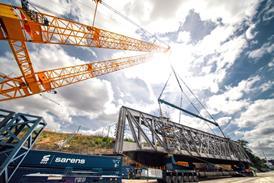The European Sea Ports Organisation (ESPO) has expressed concern about the European Commission’s plans for the future EU budget.
According to ESPO, the commission is preparing for a complete reform of the EU budget, which will see a large part of transport funding brought under a single funding plan per member state.
The organisation added that the commission’s plan to bring transport and port investments under national single plans runs counter to the need for common assessment and more European planning as put forward in the Draghi report – a 2024 report addressing European competitiveness and the future of the European Union by European Central Bank chief Mario Draghi.
ESPO outlines how a dedicated and strengthened EU transport infrastructure instrument, with a dedicated/earmarked and sufficient envelope for ports, is essential for Europe’s port sector, with 327 European ports being an integral part of Europe’s infrastructure policy.
“The importance, role and responsibilities of Europe’s ports are increasing. On top of being the gateways to trade and logistic hubs, maritime ports are playing a crucial role in the supply of energy and are thus both partners in the energy transition and ensuring Europe’s energy security.”
ESPO added that the role of ports dealing with an array of responsibilities comes with increasing investment needs, now amounting to EUR80 billion (USD86.8 billion) for the next ten years.
”’Many of these investments create high added value for society, yet come with low, slow or risky returns on investments and therefore jeopardise a successful roll-out of the projects,” ESPO added.
According to ESPO, to be fully effective, the future EU transport infrastructure instrument should: receive a much stronger dedicated port budget and make sure that a dedicated and sufficient part of the budget will support those port projects that are crucial from a societal point of view and that can help ports to deliver on a green, digital, secure and competitive Europe; ensure that the cross-border criterium in the strict sense is not a sine qua non-condition to receive funding; be more transparent in its project selection and on the role of the member states in this process; structure calls by modes, not by overarching topics in order to improve clarity and avoid overlapping scopes; and reduce the complexity and administrative burden in the application processes.
The organisation also said that this would be the ”only effective way” to ensure the completion of a seamless and well-functioning, European transport network. Plans to bring transport and port investments under national single plans run counter to the need for common assessment and more European planning as put forward in the Draghi report, ESPO claims.
The organisation added that it understands that the national single plans will have to meet strict criteria and follow EU priorities, the intended approach weakens European coordination of infrastructure across Europe and risks jeopardising the level playing field between member states.
Continuing, ESPO warned of creating an uneven patchwork between member states and regions as member states have different state structures and port management and ownership are organised on different state levels, which have consequences for port funding conditions and accessibility.
“In the absence of sufficient earmarking for ports and important projects taking place in a port context (such as those related to the energy transition), transport and in particular port investments risk being neglected in the single plans in favour of politically more attractive priorities,” the statement said.
















